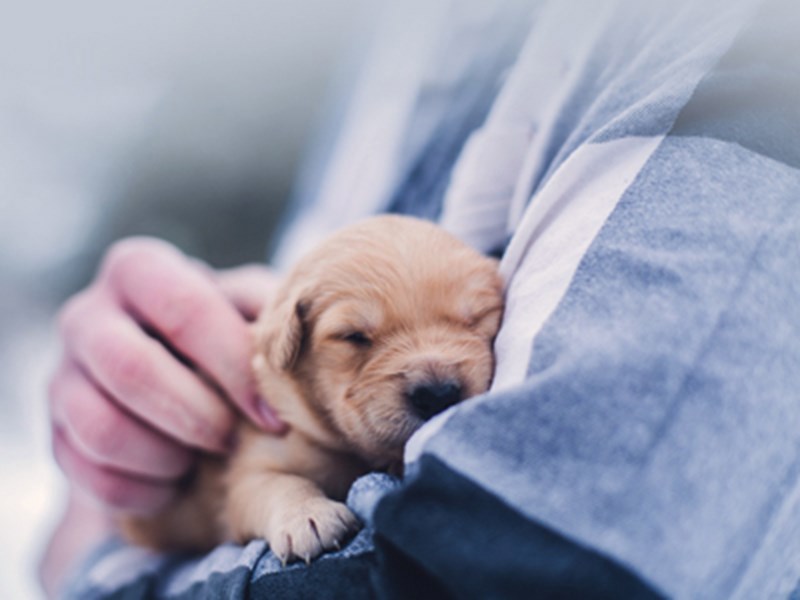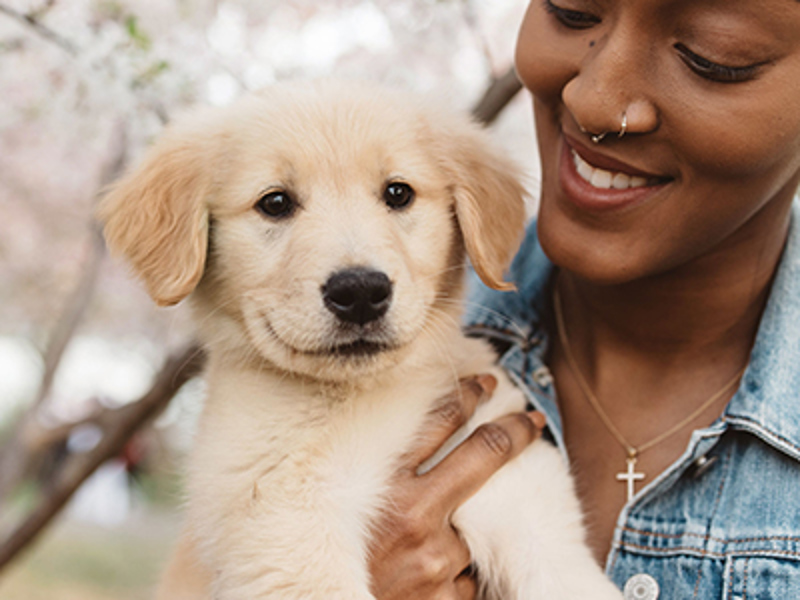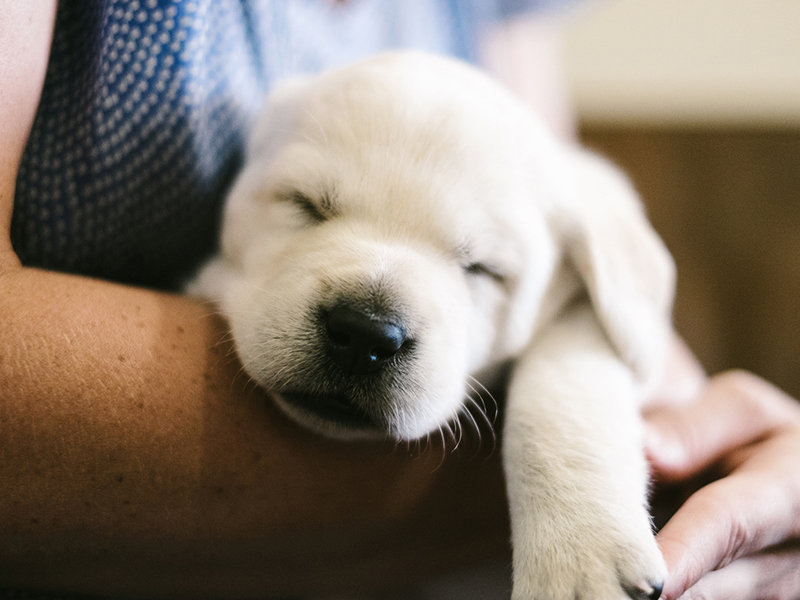
Hungarian Vizsla
Breed characteristics
- Size
- Large
- Exercise
- More than 2 hours per day
- Size of home
- Large house
- Grooming
- Once a week
- Coat length
- Short
- Sheds
- Yes
- Lifespan
- Over 12 years
- Vulnerable native breed
- No
- Town or country
- Either
- Size of garden
- Large garden
About this breed
There is evidence that the russet gold Vizsla was being used in falconry as far back as the 14th Century on the central plains of Hungary. His fine, slightly greasy coat equips him for working in the high temperatures of the plains.
In the late 19th Century some of the dwindling population were mated to pointing dogs. During the World Wars many of the Vizslas were destroyed, but fortunately, refugees from Hungary took their dogs with them and it is from this stock that the breed was resurrected. Elegant and moderately boned, the Vizsla has a nobility in its head and carriage.
Images for this breed
The Gundog breed group
Dogs that were originally trained to find live game and/or to retrieve game that had been shot and wounded. This group is divided into four categories - Retrievers, Spaniels, Hunt/Point/Retrieve, Pointers and Setters - although many of the breeds are capable of doing the same work as the other sub-groups. They make good companions, their temperament making them ideal all-round family dogs.
Colour Watch
Category 0: Breeds with no NBS colour registration options.
Read more about Colour Watch.
Breed Standard colours
Breed standard colour means that the colour is accepted within the breed standard and is a traditional and well-known colour in this breed.
Breed standard colours in this breed include:
- Russet Gold
Other colour/s
'Other' means you consider your puppy to be a colour not currently known within the breed and one that does not appear on either the breed standard or non-breed standard list. In this instance you would be directed through our registrations process to contact a breed club and/or council to support you on identifying and correctly listing the new colour.
Non-breed-standard colours
Non-breed-standard colour means that the colour is not accepted within the breed standard and whilst some dogs within the breed may be this colour it is advised to only select a dog that fits within the breed standards for all points.
Colour is only one consideration when picking a breed or individual dog, health and temperament should always be a priority over colour.
Health
Whether you're considering buying a Hungarian Vizsla puppy or breeding from your dog, it's important to understand the health issues that may affect the breed and how they can be managed or avoided.
Pre-breeding health screening
Good Practice schemes and tests
We strongly recommend that breeders, at a minimum, conduct these tests before breeding, as evidence indicates these conditions are a significant concern in the breed.
- Elbow testing (for elbow dysplasia) using the BVA/KC Elbow Dysplasia Scheme
- Hip testing (for hip dysplasia) using the BVA/KC Hip Dysplasia Scheme
- Eye testing (and gonioscopy for PLA) using the BVA/KC/ISDS Eye Scheme
Click here to find out more about The Kennel Club's health standard
Find out about a particular dog's results
Please visit our Health Test Results Finder to discover the DNA or screening scheme test results for any dog on The Kennel Club's Breed or Activity Register.
You can also view the inbreeding coefficient calculation for a puppy's parents, or for a dog you're thinking of breeding from.
DNA testing services
We don’t currently offer a breed-specific DNA testing package for this breed, but we have a wide selection of individual DNA tests available. To find out more and view our full selection, click here.
Breed health & conservation plan
Our breed health and conservations plans (BHCPs) use evidence and data to help us understand the health issues found in each pedigree dog breed. These plans help breeders and owners identify health and welfare problems and use information, health tests and health schemes to avoid passing on those problems to future puppies. They also support and provide breeders with tools and specialist expertise to help manage genetic diversity, understand the impacts of close breeding, and find the best ways to preserve the population of their breed.
Working together for the breed
We’ve worked with breed clubs and breed representatives to gather all available evidence to help us determine the priority concerns for the breed and decide how we can work together to manage and reduce these problems.
Breed priorities
The current key priorities for the breed are:
- Unregulated over breeding
- Autoimmune illnesses
- Epilepsy
- Cancers
How we plan to make improvements
We’ve agreed the following list of actions with the breed clubs to improve the health of the breed. Both parties are committed to working on these areas and will review these on a regular basis to ensure the actions remain focussed and relevant to the breed’s health.
Breed Club actions include:
- The Breed Clubs to continue to engage in research regarding Viszla inflammatory polymyopathy (VIP) and autoimmune disease, with The Kennel Club to assist in recruitment of dogs where needed. – IN PROGRESS
- The Breed Clubs to continue to collect information for dogs affected by VIP into a central database. – ONGOING (the breed have an online open registry where owners and breeders can report whether any of their dogs have been affected by VIP. This can be found here)
- The Breed Clubs to continue to encourage hip and elbow scoring in breeding stock. – ONGOING (the breed have hip and elbow screening as requirements under the Assured Breeders Scheme, and Estimated Breeding Values (EBVs) in place for hips. With increased testing it is hoped EBVs may be able to be produced for elbow dysplasia as well)
Our actions include:
- To continue to monitor epilepsy and autoimmune disease research and any projects where the breed could be included.
- To keep the breed informed as to the breed-specific epilepsy research, now hoped to be undertaken at The Kennel Club Genetics Centre, University of Cambridge.
- To investigate sharing the reporting database for breed immune-mediated concerns on its website. (a link to the open registry can be found above)
The full evidence base is available at the discretion of the breed clubs, however if you would like to seek access to the full report, please contact our health team here.
Health and Breeding Support Team (The Kennel Club)How do I use this information?
Breeders should be mindful of the top priorities in their breed and ensure they are working to reduce and eliminate the presence of these diseases when choosing to breed their dogs.
Puppy buyers should also be aware of these issues and be sure to ask their breeder how they are contributing towards the above actions, and whether any of these problems have been seen in their breeding lines.
More about health
If you have any concerns about a particular health condition in your breed then you may wish to speak to your vet or you could contact your breed health co-ordinator.
Breed health co-ordinators are individuals working on behalf of breed clubs and councils who are advocates for the health and welfare of their chosen breed. They acts as a spokesperson on matters of health and will collaborate with The Kennel Club on any health concerns the breed may have.
To contact your breed health co-ordinator please email:
Breed watch
Category 1
Currently no points of concern specific to this breed have been identified for special attention by judges, other than those covered routinely by The Kennel Club's breed standard.
Breeding restrictions
There are a number of The Kennel Club's rules and regulations that may prevent a litter from being registered, find out about our general and breed specific breeding restrictions below.
More about breeding
There are not currently any additional breed specific restrictions in place for this breed.
Looking for a puppy?
Looking for a Hungarian Vizsla? Explore our list of puppies and rescue dogs for sale near you.
More information

Need to find out more about a breed?
Use our Find a Club service where you can locate breed clubs that can offer support and advice.

Use our Find a Puppy service
The Kennel Club's Find a Puppy service provides contact details for breeders who have puppies available. Let's help you find your new best friend.

Get the best lifetime pet insurance
At Kennel Club Pet Insurance, we want you to focus on getting the best possible treatment for your dog without worrying about the cost.
